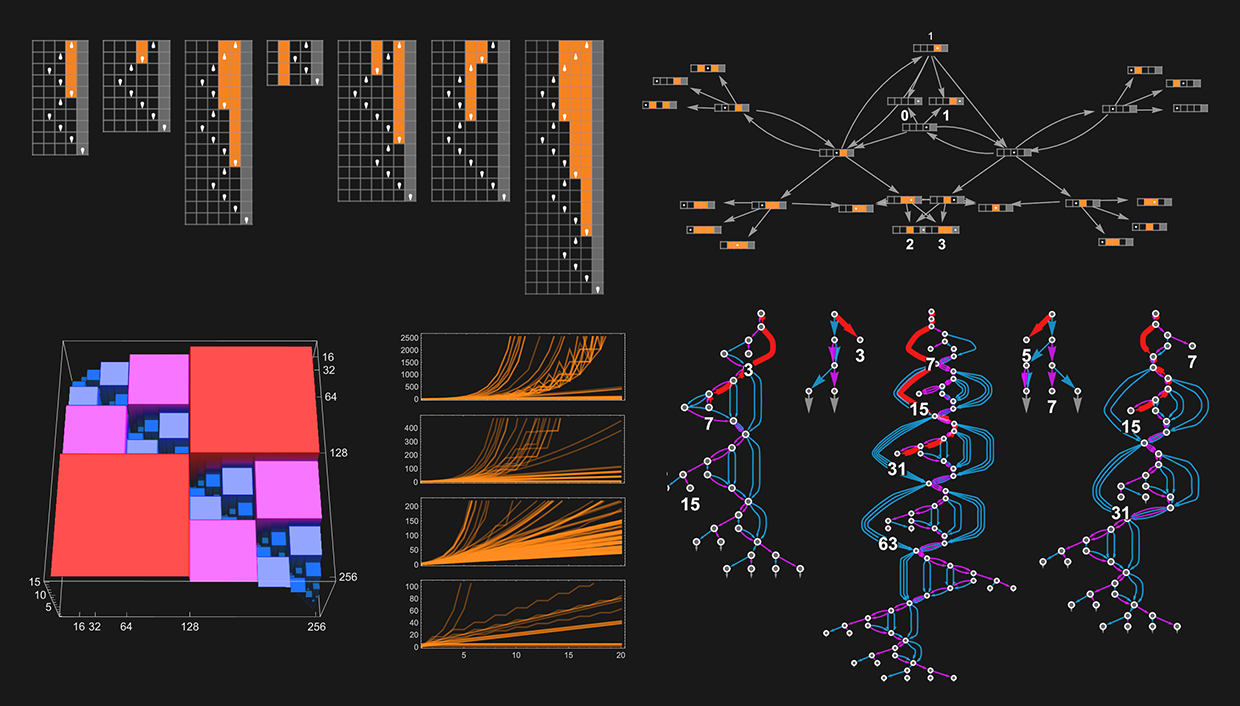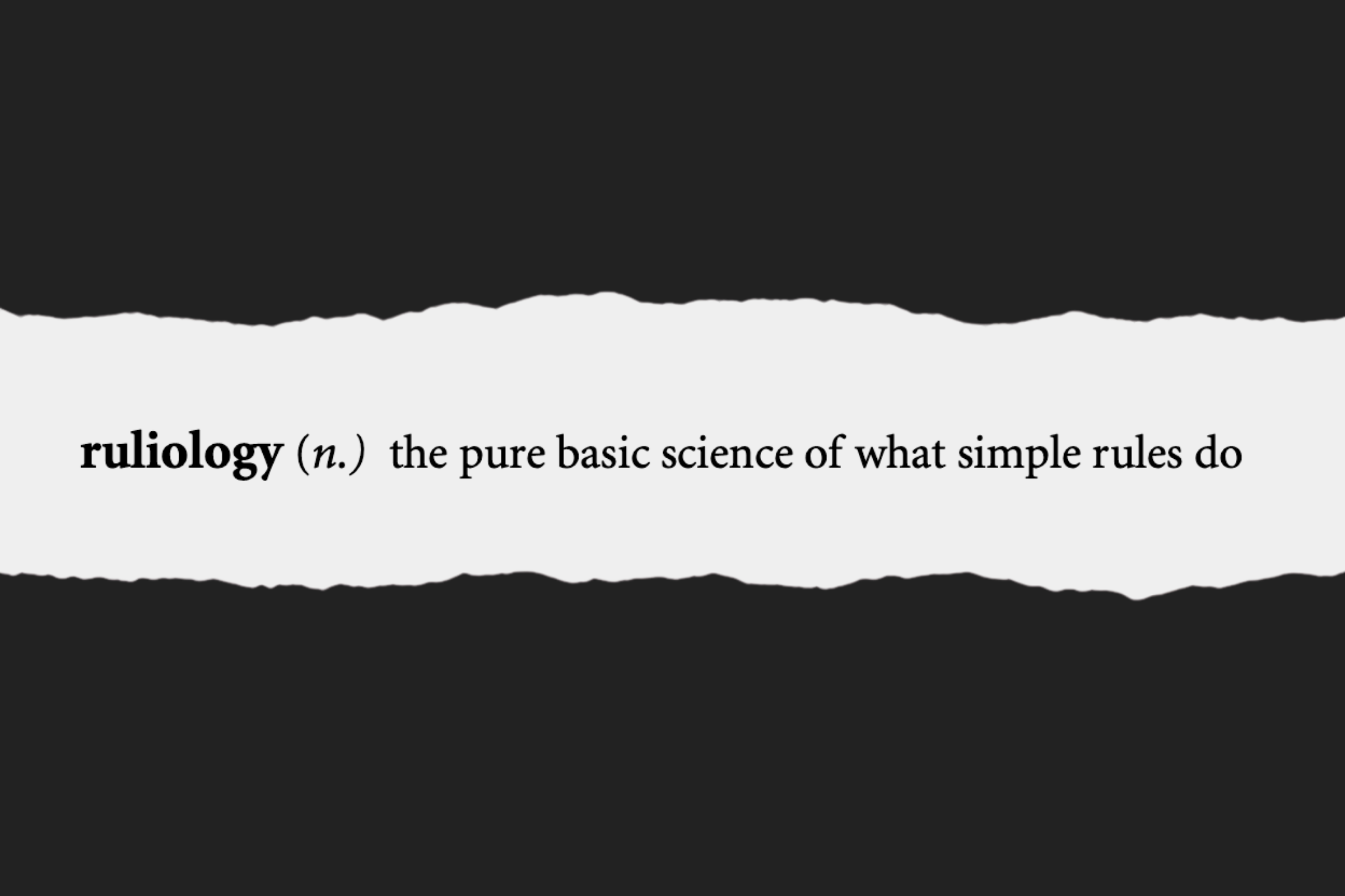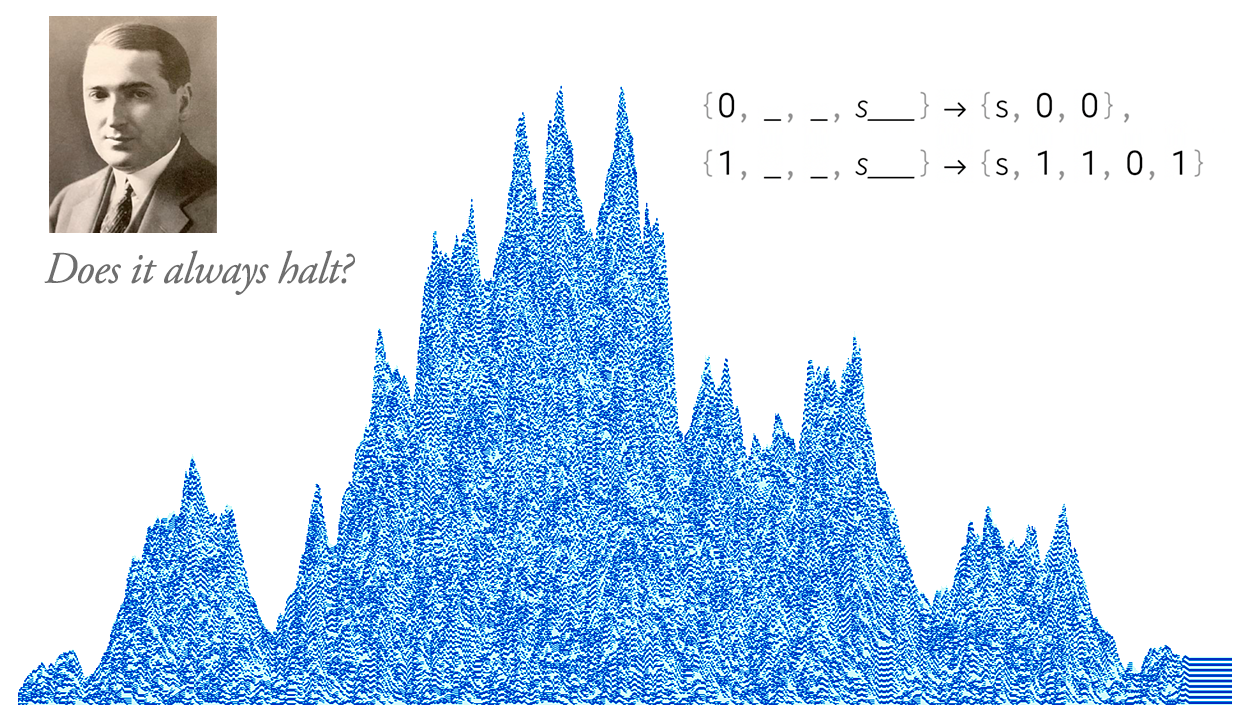Institute Output

P vs. NP and the Difficulty of Computation: A Ruliological Approach
Stephen Wolfram
“Could there be a faster program for that?” It’s a fundamental type of question in theoretical computer science. But except in special cases, such a question has proved fiendishly difficult to answer. And, for example, in half a century, almost no progress has been made even on the rather coarse (though very famous) P vs. NP question—essentially of whether for any nondeterministic program there will always be a deterministic one that is as fast. From a purely theoretical point of view, it’s never been very clear how to even start addressing such a question. But what if one were to look at the question empirically, say in effect just by enumerating possible programs and explicitly seeing how fast they are, etc.?

What Is Ruliology?
Stephen Wolfram
Ruliology is taking off! And more and more people are talking about it. But what is ruliology? Since I invented the term, I decided I should write something to explain it. But then I realized: I actually already wrote something back in 2021 when I first invented the term. What I wrote back then was part of something longer. But here now is the part that explains ruliology.

After 100 Years, Can We Finally Crack Post’s Problem of Tag? A Story of Computational Irreducibility, and More
Stephen Wolfram
For Post, the failure to crack his system derailed his whole intellectual worldview. For me now, the failure to crack Post’s system in a sense just bolsters my worldview—providing yet more indication of the strength and ubiquity of computational irreducibility and the Principle of Computational Equivalence.

Multiway Turing Machines
Stephen Wolfram
Over the years I’ve studied the simplest ordinary Turing machines quite a bit, but I’ve barely looked at multiway Turing machines (also known as nondeterministic Turing machines or NDTMs). Recently, though, I realized that multiway Turing machines can be thought of as “maximally minimal” models both of concurrent computing and of the way we think about quantum mechanics in our Physics Project. So now this piece is my attempt to “do the obvious explorations” of multiway Turing machines.

Exploring Rulial Space: The Case of Turing Machines
Stephen Wolfram
Let’s say we find a rule that reproduces physics. A big question would then be: “Why this rule, and not another?” I think there’s a very elegant potential answer to this question, that uses what we’re calling rule space relativity—and that essentially says that there isn’t just one rule: actually all possible rules are being used, but we’re basically picking a reference frame that makes us attribute what we see to some particular rule. In other words, our description of the universe is a sense of our making, and there can be many other—potentially utterly incoherent—descriptions, etc.
